The Food Plan | Eating Out | Support | Meetings | Stages of Stabilization | The 12 Steps & 12 Traditions Conference Approved Literature | Essential Tools
Food Plan Tips & Guidelines
We recommend this sample food plan to give you a great understanding of the healthy and delicious meals available to food addicts in recovery: 7-Day Menu Plan [PDF]
- Use the Daily Planner [PDF] – plan your meals and metabolic adjustment at least a day ahead and report them to your sponsor to check for compliance with the food plan.
- Schedule Mealtimes between 4 1/2 – 5 hours apart and adhere to your schedule.
- Buy two food scales – one for home and one for your car/purse. Weigh and measure all your food; have extra measuring cups and spoons available.
- Don’t pick up, no matter what! Remember not to take that first, fatal bite. Call your sponsor or a recovery buddy, if tempted.
- Get rid of the junk food in your house or have a separate cabinet from your family’s food for your supplies.
- Create a check list for the food you need to buy to support your recovery.
- Use the “Ingredients Not on Food Plan” list to check product ingredients.
- Be aware that your body will go through acute detox/withdrawal when you stop using the addictive substances. It will pass but take care of yourself as you would when you have the flu.
You can access the full Food Plan here:
Eating Out
It is suggested that you avoid eating out until you are abstinent for at least 30 days past withdrawal and detox.
- Check the restaurant menu to be sure you can safely order there; Steak & Seafood restaurants are often the easiest and safest for us because they offer baked potato, salad and protein that can be ordered plain.
- Take your scale, measuring cups, unrefined Himalayan pink salt, and measured oil and vinegar in with you.
- Order food items plain, no marinade or sauces; no spices and no added fats, restaurants cook in butter.
- If getting a clean starch/grain is a problem, take pre-measured brown rice or green peas with you.
Support
- Find a temporary or permanent sponsor, as soon as possible.
- A sponsor is someone who has what you want and will help guide you to success in your own program when you listen, stay honest, and follow directions. A sponsor can be your personal cheerleader. For additional Sponsor information, contact us here.
- Attend a minimum of 3 to 4 meetings a week.
- Share your phone number at the end of the meeting and ask for calls.
- Get contact information for people who share and inspire you.
- Help others; do service when you are ready.
- Attending meetings is crucial for maintaining abstinence. We are no longer alone; there are others like us all over the world. Share your experience, strength and hope and listen to what others share.
Meetings
Join our Phone Meetings to hear others, who are using this plan, share their experience, strength, and hope.
The Phone Meetings are:
Monday: 9:00 am & 7:00 pm
Friday: 7:00 pm
Saturday: 9:00 am
Sunday: 9:00 am & 6:00 pm
All times are Eastern Time.
For Phone Meetings call:
605-472-5752
Passcode: 299089#
Stages of Stabilization
- Managing withdrawal symptoms is a challenge in the early days. Symptoms may be flu-like, including chills, muscle aches, irritability, anxiety, insomnia, frequent urination, lethargy, and/or nausea. Withdrawals usually last from three to ten days, with four days being the most common frequency.
- 1 to 1½ years for physical stabilization.
- 1 to 1½ years for mental stabilization.
- 1 to 1½ years for spiritual/emotional stabilization.
- Total of 3 to 5 years to become stabilized.
- Avoid picking up addictive substances – that stops the stabilization process.
- If you don’t pick up the first bite, you won’t trigger the food addiction process.
- NO MATTER WHAT – DON’T PICK UP! DON’T TAKE THE FIRST BITE!
The 12 Steps & 12 Traditions
The 12 Steps
- We admitted we were powerless over food — that our lives had become unmanageable.
- Came to believe that a Power greater than ourselves could restore us to sanity.
- Made a decision to turn our will and our lives over to the care of God as we understood Him.
- Made a searching and fearless moral inventory of ourselves.
- Admitted to God, to ourselves, and to another human being the exact nature of our wrongs.
- Were entirely ready to have God remove all these defects of character.
- Humbly asked Him to remove our shortcomings.
- Made a list of all persons we had harmed, and became willing to make amends to them all.
- Made direct amends to such people wherever possible, except when to do so would injure them or others.
- Continued to take personal inventory and when we were wrong promptly admitted it.
- Sought through prayer and meditation to improve our conscious contact with God as we understood Him, praying only for knowledge of His will for us and the power to carry that out.
- Having had a spiritual awakening as the result of these Steps, we tried to carry this message to food addicts, and to practice these principles in all our affairs.
The 12 Traditions
- Our common welfare should come first; personal recovery depends upon FAB unity.
- For our group purpose there is but one ultimate authority—a loving God, as He may express Himself inour group conscience. Our leaders are but trusted servants; they do not govern.
- The only requirement for FAB membership is a desire to stop eating addictive foods.
- Each group should be autonomous except in matters affecting other groups or FAB as a whole.
- Each group has but one primary purpose — to carry its message to the food addict who still suffers.
- A Food Addicts BreakingFree group ought never endorse, finance, or lend the FAB name to any related facility or outside enterprise, lest problems of money, property, and prestige divert us from our primary purpose.
- Every FAB group ought to be fully self-supporting, declining outside contributions.
- Food Addicts BreakingFree should remain forever nonprofessional, but our service centers may employ special workers.
- FAB, as such, ought never be organized; but we may create service boards or committees directly responsible to those they serve.
- Food Addicts BreakingFree has no opinion on outside issues; hence the FAB name ought never be drawn into public controversy.
- Our public relations policy is based on attraction rather than promotion; we need always maintain personal anonymity at the level of press, radio, and films.
- Anonymity is the spiritual foundation of all our Traditions, ever reminding us to place principles before personalities.
Conference Approved Literature
Approved literature for FAB is:
Kay Sheppard’s books:
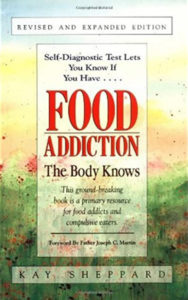
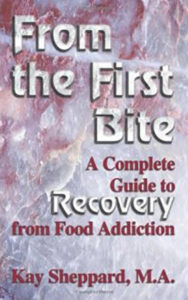

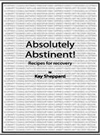
Kay Sheppard’s books may be ordered here.
Additional Approved Literature:
Alcoholics Anonymous:
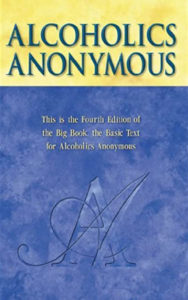
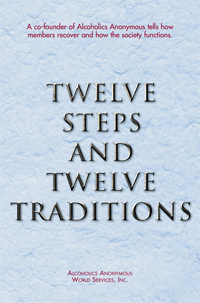
Alcoholics Anonymous books may be ordered at onlineliterature.aa.org.
Essential Tools
- Prayer and Meditation – connecting to the God of your understanding.
- Daily Gratitude List.
- A Daily Inventory: What am I doing well and what needs improvement?
- Read Approved Literature.
- Use your Daily Planner [PDF].
- Attend Meetings
- Regularly contact your Recovery Buddy.